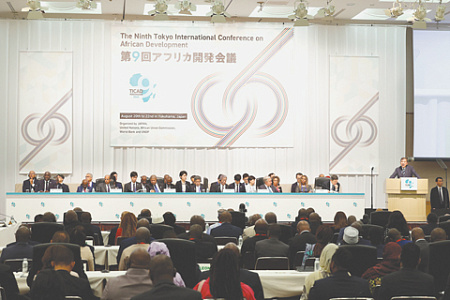
As the global race for Africa’s vast resources intensifies, Japan is making a significant move to bolster its position on the continent. The 9th Tokyo International Conference on African Development (TICAD 9), which opened this week in Yokohama, signals a concerted effort by Tokyo to deepen its economic and diplomatic ties. Prime Minister Shigeru Ishiba has underscored Africa’s strategic importance, highlighting its youthful population and its reserves of rare-earth minerals, which are vital for Japan’s high-tech industries.
Africa has long been recognized as a continent with immense business potential, yet it faces challenges in industrializing and creating jobs to ensure social stability. While Japan initiated the TICAD cooperation framework back in 1993, its direct investment in Africa accounts for a mere 0.5% of its global total. For years, approximately 300 Japanese companies operating across all 54 African nations have found themselves in stiff competition with China’s expansive Belt and Road Initiative, a reality Tokyo is now determined to address.
With its external assets hitting a record $3.7 trillion in 2024, Japan has the financial firepower to scale up its engagement. At TICAD 9, Tokyo is unveiling new public-private partnership models and financial instruments specifically designed to de-risk investments for Japanese companies. The goal is to unlock large-scale capital for infrastructure and industrial projects, transforming its modest investment footprint into a substantial economic presence.
Resource security is a primary driver of this renewed focus. Japan is moving beyond rhetoric, having recently signed key mineral exploration and mining agreements with Angola, Namibia, and the Democratic Republic of Congo. A centerpiece of this strategy is the accelerated development of the Nacala transport corridor, which will connect mineral-rich Zambia to the port of Nacala in Mozambique. This provides a more direct and efficient route for shipping critical resources to Japan via the Indian Ocean, representing a direct strategic counter to Chinese-backed corridors on the continent’s west coast.
Tokyo is carefully positioning itself as a reliable “partner” in contrast to what Japanese officials criticize as China’s “debt-trap diplomacy.” By emphasizing mutual trust and identifying the specific needs of its African partners, Japan aims to leverage its financial prowess to help solve socio-economic challenges, rather than creating dependencies. This approach is a core element of its broader strategy to enhance its influence among the nations of the Global South.
Investing in human capital is another key pillar of Japan’s strategy. With Africa projected to be home to one-third of the world’s youth by 2050, Tokyo sees an opportunity for shared growth through innovation. A flagship initiative announced at the conference is a plan to train 30,000 African specialists in artificial intelligence over the next three years. This focus on digital health, agriculture, and green energy aims to foster a skilled workforce and create a more favorable ecosystem for Japanese tech companies to enter the African market.
As Prime Minister Ishiba engages in talks with leaders from over 30 African nations, the success of this charm offensive remains to be seen. However, with proposals on the table for a potential Japan-Africa duty-free trade zone, Tokyo is signaling a long-term commitment. In an era of escalating global competition, Japan is making a clear and calculated bid to secure its future by investing in Africa’s.
